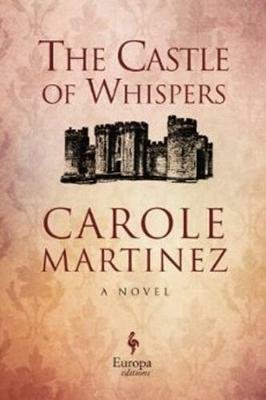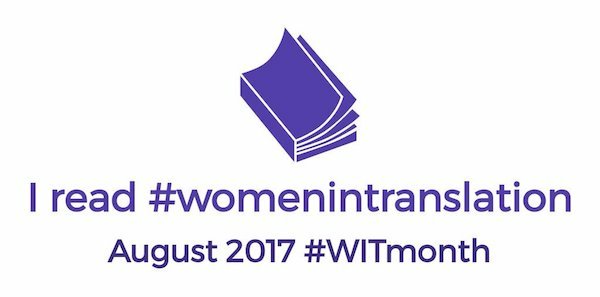It’s time for some historical fiction, the second novel by French writer Carole Martinez. In the late 12th century, Esclarmonde is the beautiful daughter of a lord; she faces marriage to the philandering Lothaire, scion of Montfaucon, but she knows that this will lead to an unacceptable loss of autonomy:
I would be nothing but a modest container whom successive pregnancies would finally carry away. And even if Lothaire died before me, my widowhood would not protect me, but would abandon me again to the highest bidder as a token of some alliance or other.
(translation by Howard Curtis)
There’s only one thing that Esclarmonde can think to do: at the wedding ceremony, she cuts off her ear and announces that she will dedicate her life to Christ as an anchoress. Her family’s seat, the Castle of Whispers, has been added to piecemeal over the generations; now her father adds the chapel in which Esclarmonde will be sealed for the rest of her days. She will be considered dead to the world, even receiving the rite of extreme unction.
However, the night before her confinement begins, Esclarmonde is raped. In the following months, she falls pregnant and gives birth to a boy whom she names Ezléar, “God’s help”. She decides to keep the child, whose birth comes to be seen as miraculous (no one asks Esclarmonde the question that would reveal otherwise). Add to this that no one has been claimed by death since Esclarmonde entered her cell, and the Damsel of the Whispers’ reputation only grows.
But although Esclarmonde’s godliness increases in the eyes of others, her own feelings are moving in a different direction:
Gradually, without my even noticing, my attention moved away from the hagioscope to my son and all the people he attracted. God occupied me less than his creatures from now, and I never grew tired of watching them, listening to them, trying to understand what motivated their little brains. I no longer dreaded their judgment, or even that of God. I had not lied, I had merely kept silent about a truth that nobody wanted to hear anyway, and my silence had offered a blank space to be embroidered, an emptiness that everyone had seized on with delight.
Esclarmonde’s self-questioning over her faith is a recurring theme of The Castle of Whispers. Another is motherhood, and what Elzéar represents you Esclarmonde – whether she’ll be happy to surrender him to the outside world before he grows too large to fit through the window to her cell. A further theme is power: in a world ruled by men, Esclarmonde gains a certain amount of power through her status as an anchor essay. Later on in the novel, she convinces her father to join Frederick Barbarossa’s forces on the Third Crusade; the lord’s young wife Douce, Esclarmonde’s stepmother, rules at home in his stead. The book becomes an exploration of the shifting spaces of male and female power.
I’m struck by how much The Castle of Whispers encompasses when its protagonist spends most of time confined to a small space. More than that, it’s thoroughly engrossing. After this, I’ll certainly be going back to look at Martinez’s first novel, The Threads of the Heart, and looking out for future books, too.
Elsewhere
Stu has reviewed this book over at Winstonsdad’s Blog.
Book details
The Castle of Whispers (2011) by Carole Martinez, tr. Howard Curtis (2014), Europa Editions, 194 pages, hardback (review copy).


12th August 2017 at 2:41 pm
I don’t generally read historical fiction though as I’m currently engrossed in Jaan Kross’ The Ropewalkers I should probably be more open-minded!
27th September 2017 at 5:19 pm
I’ve got that on the shelf, but have been slightly put off by its size. Maybe I should reconsider..?
13th August 2017 at 6:04 pm
Cutting off your ear is a desperate measure but committing to spending your life holed up seems infinitely worse